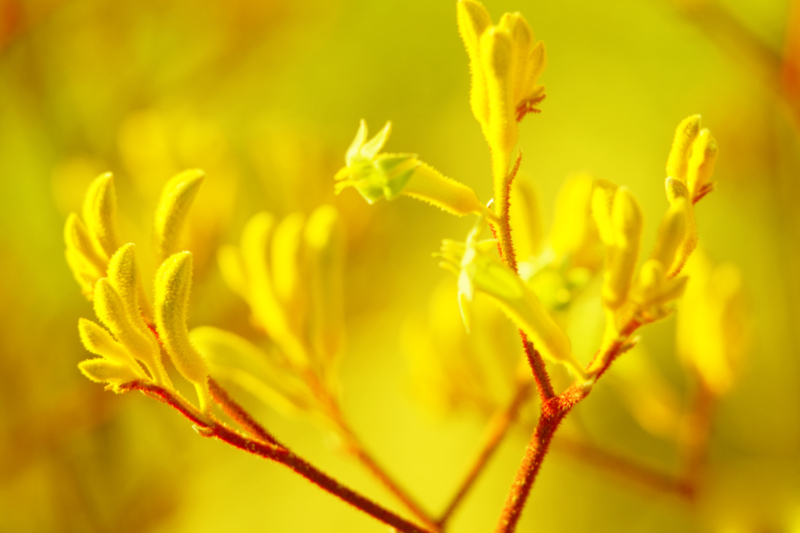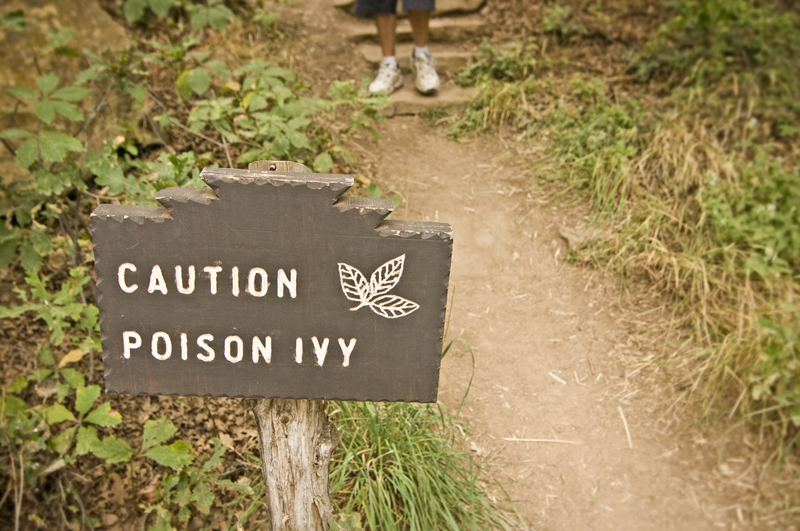Start strong with these 9 pivotal tips for budding gardeners
Posted on 27/08/2025
Start Strong with These 9 Pivotal Tips for Budding Gardeners
Are you a gardening novice, eager to transform your patch of earth into a lush oasis? You are not alone! Gardening offers an incredibly rewarding journey, but even the greenest thumbs started as curious beginners. To set yourself up for blooming success, here are nine crucial gardening tips designed specifically for budding gardeners. These guidelines will help you establish a solid foundation, avoid common pitfalls, and cultivate a thriving garden--right from the start.

1. Choose the Right Location for Your Garden
Every successful garden begins with location. Many beginner gardeners overlook the importance of sunshine and proximity to water sources. Your plants' growth and health largely depend on where they're rooted!
- Sunlight matters: Most vegetable and flower gardens require at least 6 to 8 hours of direct sunlight daily. Observe your yard at different times to find spots with ample light.
- Accessible water: Make sure your plot isn't too far from a hose or water supply. Consistency in watering is crucial during dry periods, especially as young plants establish roots.
- Shelter from wind: If your area is windy, consider a spot shielded by fences or shrubs, or plan to erect a temporary windbreak.
Right from the get-go, location is everything! Take the time to choose wisely and your garden will thank you.
2. Pick Plants That Suit Your Climate and Soil
Budding gardeners often select plants based on beauty alone, but not all species will flourish in every location. Your garden's unique microclimate and soil composition should guide plant selection.
- Assess your climate zone: Research your USDA Hardiness Zone to determine which plants thrive in your region's temperatures.
- Test your soil: Invest in a simple soil test kit. Most plants prefer neutral to slightly acidic soil (pH 6.0-7.0), but individual requirements vary. Knowing your soil type helps prevent disappointing plant failures.
- Start with proven performers: Opt for plants labeled as "easy to grow," "drought-tolerant," or "native" for your zone. These are typically forgiving for novices.
Pro tip: Visit local garden centers and speak with experienced gardeners. Their regional expertise is invaluable for selecting garden plants suited to your space and climate.
3. Plan Before You Plant
Enthusiasm often leads new gardeners to dash outdoors with seeds in hand. But thoughtful planning is pivotal to gardening success!
- Design your space: Sketch a simple map of your garden beds, factoring in plant spacing and mature sizes. Overcrowding can lead to disease and poor growth.
- Consider succession planting: Stagger plantings for a continuous harvest or bloom. Not all seeds need to go in the ground at once.
- Companion planting: Some plants support each other's growth or repel pests. For example, marigolds deter nematodes and attract pollinators, while tomatoes and basil grow well together.
A little planning saves a lot of trouble later. Keep a gardening journal to track what works and what doesn't in your yard for future reference.
4. Aim for Healthy, Well-Prepared Soil
The best gardeners will tell you: The secret to a thriving garden is the soil. Think of it as the bedrock of your garden's success.
- Sow in rich, loose soil: Plants need room for their roots to spread and access nutrients. Loosen soil before planting and work in organic matter like compost or well-rotted manure.
- Check for drainage: Most garden plants dislike "wet feet." Soil should be moist but never waterlogged. Raised beds or adding coarse sand can alleviate drainage issues.
- Mulch for health: Mulch suppresses weeds, retains moisture, and slowly feeds soil as it breaks down. Try straw, shredded leaves, or bark chips for both beauty and function.
Strong soil builds strong plants--don't skip this step in your gardening journey!
5. Invest in Essential Gardening Tools
Budding gardeners don't need a shed filled with gadgets, but a smart selection of basic tools makes the work much easier.
- Gloves: Protect your hands from thorns, splinters, and soil-borne pathogens.
- Trowel and hand fork: Essential for digging, planting, and weeding small spaces.
- Pruners: Keep plants healthy by removing dead or damaged growth.
- Watering can or hose: A watering can with a rose (sprinkler) attachment is gentler for seedlings.
- Wheelbarrow or bucket: Useful for transporting soil, mulch, and plants.
Spend a little extra on quality gardening tools--they last longer and work better for all your horticultural adventures.
6. Water Wisely and Consistently
Watering is both art and science for new gardeners. Too much or too little can spell disaster for tender roots and new shoots.
- Morning is best: Water early in the day when evaporation rates are lowest and plants can absorb moisture before the heat rises.
- Soak deeply, not frequently: Shallow, daily watering encourages surface roots. Instead, soak the soil thoroughly once or twice a week to promote deeper, more drought-resistant roots.
- Check soil moisture: Stick your finger into the earth up to the first knuckle. If it's dry at that depth, it's time to water.
Avoid overwatering, which can lead to root rot. Consistent watering routines are one of the most important gardening tips for beginners.
7. Feed Your Plants for Vigorous Growth
As plants grow, they deplete vital nutrients from the soil. Regular feeding is key for bountiful harvests and vibrant blooms.
- Start with compost: A layer of compost or manure added annually delivers essential nutrients and enriches the soil's structure.
- Use balanced fertilizers: If your plants show signs of deficiency (yellowing leaves, stunted growth), choose a balanced fertilizer labeled with equal N-P-K numbers (e.g., 10-10-10).
- Follow label directions carefully: Over-fertilizing can burn roots and harm soil life. More is not always better!
A well-fed plant is a happy plant. Make feeding a regular part of your gardening routine for robust, healthy growth.
8. Be on the Lookout for Pests and Diseases
Even the best-tended gardens occasionally face pests and diseases. Catching problems early protects your growing investment.
- Inspect plants regularly: Look for signs of distress--discoloration, holes in leaves, wilting, or sticky residue.
- Use natural remedies: Whenever possible, opt for organic solutions like insecticidal soap, neem oil, or hand-picking pests to minimize harm to pollinators.
- Promote biodiversity: Encourage beneficial insects such as ladybugs and lacewings by planting a variety of flowers.
Prevention and vigilance are vital for beginner gardeners and experts alike--your plants' health depends on your watchful care.
9. Keep Learning and Enjoy the Process
Seasoned gardeners will tell you: gardening is a journey, not just a destination. Every year, and every plant, teaches something new.
- Join local gardening groups: The collective wisdom and support can boost your knowledge--and your confidence.
- Read and research: There are endless books, online courses, and trusted blogs dedicated to gardening for beginners.
- Celebrate small successes: Take pride in every sprout and flower. Don't let setbacks set you back--mistakes are valuable learning opportunities.
Above all, have fun! It's normal for new gardeners to face a few challenges. With patience and practice, you'll develop a thriving, beautiful garden that brings year-round joy.

Additional Tips for Successful Gardening
- Label your plants: Especially useful for new gardeners. Remembering what and where you've planted helps with care and harvesting.
- Stay on top of weeds: Weeds compete for water and nutrients. Regular weeding keeps the garden tidy and productive.
- Adjust as you grow: If something isn't thriving, don't be afraid to move plants or try new varieties. Flexibility is key for gardening beginners.
Start Gardening with Confidence
Your first gardening ventures can be truly transformative! With these nine pivotal tips, every budding gardener--whether growing in containers on a balcony or cultivating a backyard plot--can enjoy a strong, rewarding start. Remember:
- Right location
- Appropriate plant selection
- Thorough planning
- Nurturing soil
- Essential tools
- Clever watering
- Proper feeding
- Pest vigilance
- Lifelong learning
Apply these beginner-friendly gardening tips and you'll not only witness your plants flourish, but you'll gain fresh appreciation for the rhythms of nature and the joy of growing your own green retreat. Start digging, start planting, and, above all, start enjoying your gardening adventure today!
Happy Gardening!
Latest Posts
From Organic Clutter to Soil Enrichment
Handy Gardening Tools for Every Outdoor Connoisseur
Unlock the Potential of Your Hedges with Expert Trimming

